#brangien
Explore tagged Tumblr posts
Text




A couple more lil Arthuriana designs (For those of you who know about the comic I still do intend to finish it eventually... I think it just needs a bit of a rewrite and I need more time XD)
#arthuriana#prose tristan#tristan#brangien#dinadan#gouvernail#knights of the round table#knights or fools
26 notes
·
View notes
Text

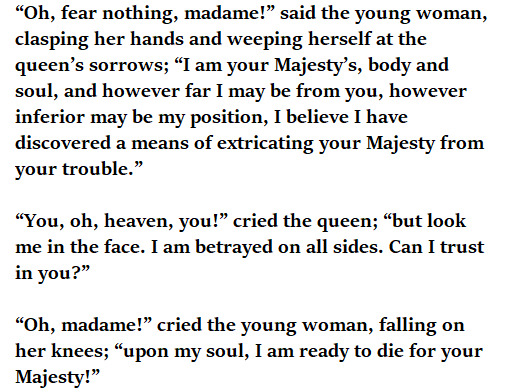
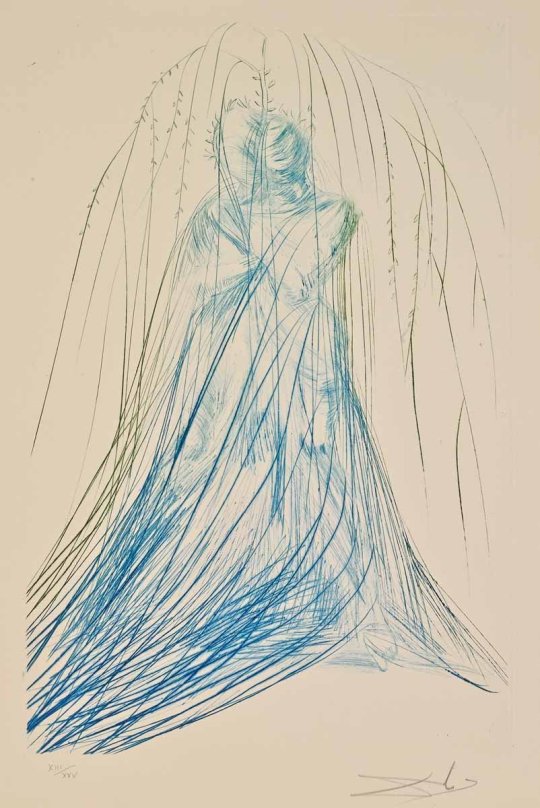

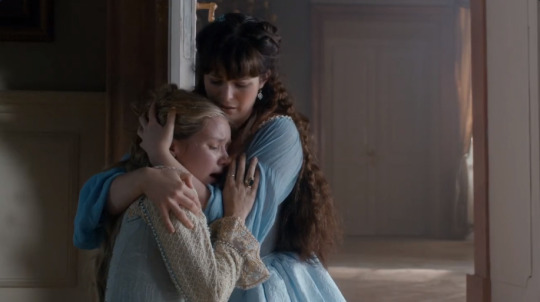

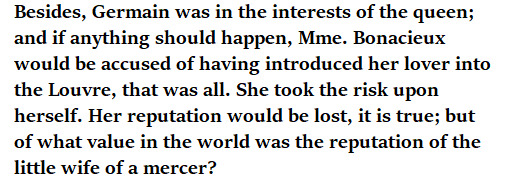
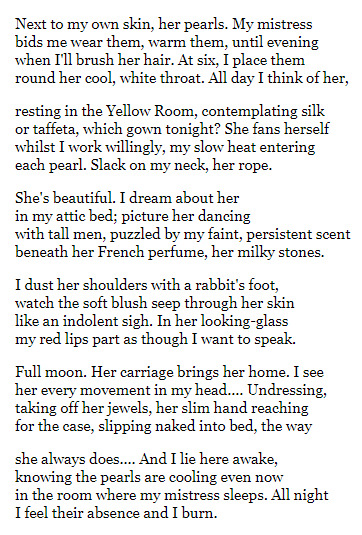
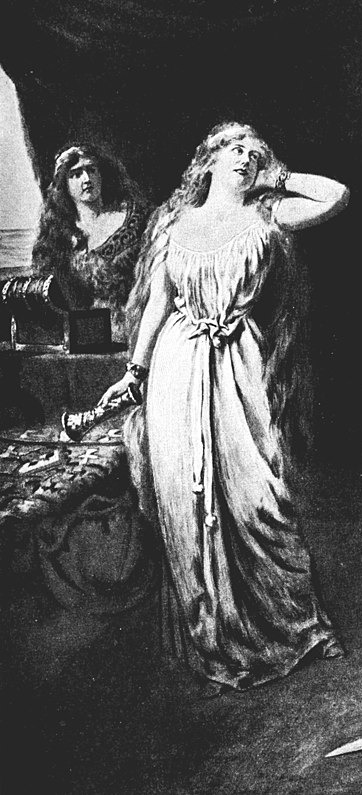

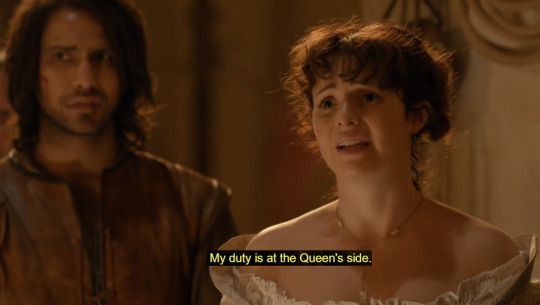
on Brangaine, Constance Bonacieux, and devotion
La Tavola Ritonda / The Three Musketeers by Alexandre Dumas / Iseult and Brangaine (1970) by Salvador Dalí / Tristan and Isolde discovered by King Mark (1883) by August Spiess (detail) / The Musketeers (2014-2016) / Prose Tristan / Warming Her Pearls by Carol Ann Duffy / Detail of the illustration for Richard Wagner's Tristan and Isolde in The Victrola Book of the Opera: Stories of One Hundred and Twenty Operas with Seven-Hundred Illustrations and Descriptions of Twelve-Hundred Victor Opera Records (1917) by Samuel Holland Rous
#'is the lesbian poem really necessary' yes it's a load-bearing lesbian poem.#arthuriana#arthurian legends#brangien#brangaine#isolde#iseult#the three musketeers#alexandre dumas#the musketeers bbc#the musketeers#constance bonacieux#anne of austria#my stuff#gella talks musketeers#gella talks arthuriana#talk talk talk#mine: compilation posts
106 notes
·
View notes
Text
and they're also fucking ASSHOLES about it
is it embarrassing to say I literally sobbed my eyes out after finishing Tristan and Iseut
#pap speaks#i sobbed my eyes out but also... justice for brangien and iseut des blanches mains bc wtf they did not deserve that#medievalposting
2 notes
·
View notes
Text
Tristan and Isolde



mads mikkelsen as ‘tristan’ in “king arthur”, 2004
Tristan is a prince whose mother is the sister of the King, Mark. Both of his parents died when he was young, and he was raised by Gorvenal to be a gifted swordsman and musician (Tristan became an accomplished harp-player). Isolde, meanwhile, is a princess, the King of Ireland’s daughter. She is beautiful and fair-haired and admired far and wide.
Cornwall is bound by fealty to Ireland, which demands that Cornwall send 300 youths and 300 maidens to Ireland as tribute.
However, if a Cornish champion could beat the Irish giant Morholt (the King’s brother-in-law) in single combat, the King of Ireland agreed that the tribute would not need to be paid.
Tristan defeats Morholt, but is badly wounded with a poisoned spear. He is left on a ship to die. But the ship finds its way to the shores of Ireland, where Tristan is taken into the royal palace. The sorceress queen cures him with an incantation, and Tristan falls in love with Isolde, to whom he reveals his true identity. When she learns that he has killed Morholt, her uncle, she declares her hatred for him, and Tristan returns to Cornwall.
Mark wants to marry Isolde, so he sends Tristan as his ambassador, to bring Isolde back to Cornwall so they can be wed. In Ireland, the wedding agreed, the sorceress queen bids Isolde farewell, but gives a love potion to the maid-servant named Brangien, with instructions to give it to the married couple on their wedding night.
On the voyage to Cornwall, Tristan and Isolde need a drink and both drink the love potion, not realising that it isn’t wine. They promptly fall in love. After the wedding of Mark and Isolde, Brangien – realising that the error with the love potion is all her fault – takes the place of Isolde in King Mark’s bed on the wedding night, to trick the King into thinking she is Isolde. Meanwhile, the real Isolde is in Tristan’s arms.
Mark doesn’t realise the deception for a while, although the rumours are all around the court. Eventually, his most loyal barons tell him that Isolde is unfaithful. Although Mark banishes Tristan from the palace, Tristan and Isolde continue to meet in secret. When they are discovered together, they are sentenced to death by burning. However, the lovers escape, and go on the run together.

They go and live as a poor couple in the woods, until one day, King Mark discovers them, walking in on them while they’re both fast asleep. But when he sees the sword between them and realises the lengths they have gone to in order to guard their love, he feels sorry for them, and replaces the ring on Isolde’s finger as a sign that he forgives her. He also places his sword between them, in place of Tristan’s, as a token or gift for his former knight.
When the two lovers wake, they are so moved by the King’s mercy and kindness that they return to court. Mark welcomes Isolde back, but he tells Tristan he cannot remain at court. He is exiled from Cornwall and goes to live in Brittany, where he marries another woman named Isolde, oddly enough: Isolde of the White Hands, as she is known.
Tristan remains loyal to Isolde and cannot make love to his new wife (Isolde of the White Hands). He is wounded in battle (as before, with a poisoned lance), but this time there is no cure. As he lies dying, he asks one of his companions, Kaherdin, to go and tell Isolde (as in King Mark’s wife, Tristan’s first love) that he is dying and he wants to see her one last time.
Tristan tells Kaherdin to hoist a white sail to his ship if he is successful in locating Isolde, but a black sail if he fails. (Compare this plot detail with the ancient Greek legend of Theseus, too.) Unfortunately, Tristan’s wife hears of this plan.
Kaherdin finds Isolde and she agrees to come and see her true lover. However, Isolde of the White Hands, Tristan’s wife, lies and tells her husband that she has seen Kaherdin’s ship bearing a black sail. Heartbroken, Tristan dies. Isolde arrives with Kaherdin and learns she has missed Tristan, who has already departed this life. She dies of a broken heart shortly afterwards, her lips locked with Tristan’s in one last kiss.
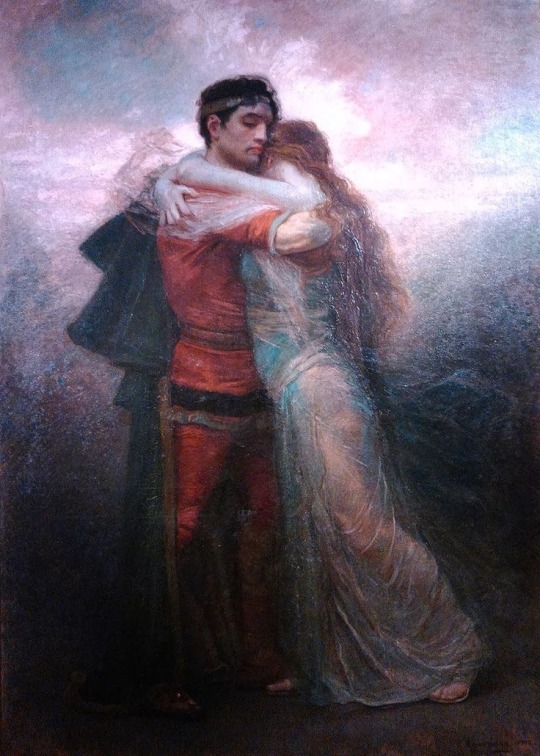

#tristan#hannibal lecter#aesthetic#fyp#old money#will graham#hannibal#hanniballecter#hannigram#tristan and isolde#medieval#sword#swords#movies#movie review#mads mikkelsen#i love mads mikkelsen#mads speaks#film#filmography#aestethic#painter#painting#classic#fashion#outfit#traditional art#artwork#art#original art
33 notes
·
View notes
Note
So I know you like Tristan and Dinadan but what are your thoughts on other Cornwall gang/Tristan support cast folks? (ie Brangeien, Kahedrin, Mark, Palomedies, Dinas, Lamorak, anyone else)
i love them ALL so much omg. the characters all complement each other really well! i should have said this in my crackships ask, idk why it slipped my mind, but in a perfect world i think tristan, iseult, palamedes and bragwaine/brangien/brangaine/however her name is spelled should be in a polycule. bragwaine is the only braincell in this operation. because of tristan there’s a negative braincell total anyway. it would be utter chaos and i live for it
i forget about kahedrin and dinas a lot but i like them too!!! when i think of dinas all i can think about is that one episode where his girlfriend leaves him and takes his dogs, and he’s more upset about the dogs than his girlfriend. based.
lamorak isn’t one of my absolute favorites but i like him a lot too! i like to meme on him. he’s into milfs and i love that for him. honestly me too buddy
i love palamedes a lot actually, he’s another one of my faves. just love a guy who goes and cries by wells. deeply relatable man. in touch with his feelings
this got very long LOL these are my scattered head cold thoughts, my head currently feels like it’s filled with cotton balls so my thoughts aren’t exactly coherent lol
5 notes
·
View notes
Text
new damosel alert!
brangaine's niece!!!
A young, but discreet damsel, niece to Brangien, was dispatched to England with a packet for our hero; but she long sought for him in vain, till one day Tristan, fatigued with a long and useless pursuit after a Knight whose name was Breus the Merciless, alighted near a fountain and fell asleep. The young lady coming that way, saw the vigorous Passabreul, his faithful steed, and instantly descried the Knight, who was so lean and altered that she hardly knew him again.
glad to see the medieval damoesel postal network be so active and running so smoothly without hitch
4 notes
·
View notes
Text
1.66.3 The Excalibur Curse by Kiersten White
SPOILERS
Pages: 345
Time Read: 5 hours and 37 minutes
Overall Rating: 3.5★ Storyline: 3.5★ Dialogue: 4★ Characters: 4★
Genre: YA Mythological Fantasy
TWs for the book: Violence, death, sexism/misogyny, multiple su*c*de attempts, colonization, war, su*c*dal thoughts, grief, toxic relationship, infidelity, xenophobia, self harm, blood, vomit, kidnapping, injury, gore, death of a parent, murder, gaslighting, abandonment, body horror, fire, animal death, s*xual harassment, child abuse
POV: Third person
Time Period/Location: The continent of England in the fictional city of Camelot
First Line: Once, not so long ago, Guinevere had ridden surrounded by armed soldiers and marveled at her power.
Guinevere (Nimue): Guinevere overall had a lot of great character development throughout this series. I really enjoyed her as a main character. I wasn't expecting her origin to be both from the Lady of the Lake AND the original Guinevere, so that was an unexpected and kind of dark twist. The fact that Guinevere lost her magic in the end, however, absolutely enraged me, I hate that trope so much.
Arthur: This book really made me not like Arthur I'm going to be honest. He made up for it and obviously had the excuse he was under Merlin's control, but the fact that he just went full colonizer rubbed me the wrong way.
Mordred: I'm so glad Guinevere didn't end up with Mordred, they had some chemistry but it just wasn't right. He also started to get on my nerves with his melodramatics.
Lancelot: I'm so annoyed that Lancelot was mostly absent from this book. Her and Guinevere had such good chemistry in The Guinevere Deception, and then it faded in The Camelot Betrayal, and I really feel like it should have come back stronger in this book.
Morgana (Morgan le Fay): Another thing that bothered me was really not getting much more of Morgana. She was such an interesting character with a lot of potential, but I feel like all of that potential was given to Mordred.
Storyline: I really did enjoy this book the most out of the three. It was entertaining and fast paced, and didn't have any side quests or what felt like filler episodes like most of The Camelot Betrayal did. However, this book went from a 4.5★ to a 3.5★ with that ending. Lancelot was set up to be a love interest in book one, the tension was gone in book two as her and Guinevere argued most of the time, and then she was largely absent from book three, with her and Guinevere never truly speaking and resolving the hurt feelings between them. And then when I think they will be together at the end (because Guinevere is connected to her and her alone by love and because she expresses wanting to kiss her in one of their shared dreams), Guinevere thinks to herself that her and Arthur can one day be properly husband and wife?? That really pissed me off because then she proceeds to hold hands with both Arthur and Lancelot. Was White going for a poly situation, because I don't think so? The other thing that really set me off was Guinevere losing her powers at the end. Sarah J Maas does this to her female characters and it makes me so angry every time, why can't they keep their powers and their magic? Why do they have to conform now that their power has served its usefulness. I also wish Merlin and Morgana were expanded upon as characters.
Representation: Brangien and Isolde are lesbians and in a relationship. Guinevere and Fina are bisexual, and it is implied that Lancelot also has romantic feelings towards Guinevere. It is implied in the second book that Sir Tristan is aroace, although I don't know if his connection with Nectudad was supposed to be interpreted as romantic or not near the end. Brangien is implied to be Asian, and Sir Tristan is black. Sir Bors has a withered arm.
Summary: Although I wasn't happy with the ending, I did really enjoy this trilogy. I know some complaints said it was slow, and plot wise it can be, but I found the characters engaging enough that I didn't even notice. Guinevere is one of my new favorite FMCs. I just wish the ending had been a bit clearer and her Lancelot were canon.
Complete Recap: Guinevere is in the clutches of Morgana, Mordred, and King Nechtan, who is being controlled by the Dark Queen. They are traveling north to bring her to the Dark Queen, as she has wanted her this entire time. They sleep during the day and travel at night. The first time they stop Mordred instructs her not to sleep, as the Dark Queen would be able to access her mind. As they ride that night however, Guinevere drifts off and meets Isolde in her dreamspace. She assures her that she is as safe as she can be, and gives her information about her location. Guinevere begins to get close with Fina, Nechtan's younger daughter and a warrior herself. They are attacked by another tribe, and Guinevere has a chance to escape, but Mordred and Fina are in danger, so she picks up a bow and arrow and defends them instead of running. In doing so, she realizes that she has the real Guinevere's muscle memory. Mordred warns Guinevere not to talk to Morgana, but Guinevere wants answers, so when they stop because of a storm, she goes to see her, Fina and Mordred following. Morgana tries to magically connect Guinevere to Merlin, first seeing where the emotion of passion leads her. Guinevere goes into Mordred's mind, where she feels his despair at having betrayed her and lost her trust. He tries to fight against Morgana to release Guinevere, but she restrains him with roots. When Guinevere comes back to herself, she insists they try again, and Morgana tries family. Guinevere splits off into three, first seeing Brangien scolding Ailith in the kitchen for being too concerned about the magic shield around the city. She sees where Guinevere left her crown on Arthur's bed and moves it before Arthur can return and see it. She then goes to Lily, who is visiting with the common people of Camelot with Isolde. The last person she sees for family is Dindrane. She is meeting with her stepson, Lionel, and she is instructing him to guard Princess Lily, hoping that she can make a match out of the two of them. Morgana is frustrated and argues with Fina and Mordred. Finally, she tries duty, but instead of taking her to Merlin, it takes her to Arthur. He is standing in the aftermath of a battle. He tried to come and get his son, but it was a trick and a lie that he was still alive, and him and his knights were ambushed instead. He suspects Guinevere to be in danger, but decides to prioritize Camelot, and take over the entire island, starting with the south.
The strength of the magic causes Guinevere to stop breathing, but Mordred revives her. Nechtan and Nectudad, his eldest daughter, are there, and Morgana is telling him Arthur's location and what he is doing. Fina takes Guinevere back to her tent and they get drunk, realizing too late the wine Fina stole from Morgana is actually the truth potion. They end up spilling all of their secrets, Guinevere sharing that she is a changeling and can do magic, and that she has feelings for both Mordred and Arthur, and Fina sharing she does not agree with her father listening to the Dark Queen and that she will help Guinevere escape. Mordred comes in, and Guinevere questions whether or not she can trust him, so he drinks some of the truth potion as well. He tells her that he was coming to Camelot to warn her, not take her, but he was tricked by Morgana. He realized after he raised her that the Dark Queen has been corrupted from being incorporeal for so long, and that's why he had been trying to save the wolves in the forest before Guinevere burned them. He tells her he plans to get her out and away from the Dark Queen. That night, when she dreams, Lancelot is there, but so is Mordred. They fight, and Guinevere is annoyed that they are paying her no mind. Mordred instructs Lancelot on how to beat him and discloses their location and information about Nechtan's forces. Guinevere wanders around the forest they are located in in her mind, and stumbles upon what looks to be herself but with brown eyes, floating dead in a pond. She runs back to Mordred and Lancelot, and he tells her not to explore her own mind like that as it can hurt her to force memories of her past. The next morning, without consulting Mordred, Fina retrieves Guinevere's pouch from Morgana's tent, and gives it to her along with clothes. She says she will leave her least favorite guard to watch her and then distract her father, sister, Morgana, and Mordred. Guinevere promises to get word to Arthur as soon as possible that she is safe so that way he does not come and attack Fina and her people. When she is gone, Guinevere changes and uses a knot to command the guard to take a horse and ride south, to trick them into thinking it is her. She then travels northwest on foot, planning on cutting down south to Camelot once she is far enough away. But not before she gets the answers she's looking for.
On her way, she comes across a group of people, adults and children, wounded. They tell her it was the Saxons, and she uses her cloak to bind wounds and her magic to burn away infections. They give her food and point her in the direction of a lake. She goes, and despite her fear, walks in. She slips and begins to drown, but Mordred saves her, bringing her to a cave and laying with her for warmth. She says she was trying to summon the Lady of the Lake, but Mordred tells her that was foolish because she is not an omnipresent being, and is usually just around Camelot. When they enter her dreams again, Lancelot is there ready to fight Mordred. Guinevere tells Lancelot to tell Arthur he doesn't need to march north. When Lancelot leaves to return to her post, Guinevere asks Mordred to kiss her. He refuses, since he doesn't want her to just kiss him in the dream and then ignore him in real life. They both wake, and she kisses him and they are together. In the morning, they talk about leaving Camelot and the Dark Queen behind, living just the two of them, free. Mordred takes them to a nearby forest and tells her he fell in love with her the second day of knowing her. Guinevere realizes she doesn't have a moment she fell in love with Mordred because she isn't in love with him. Morgana possesses Mordred, and does the connection magic to her again, this time using the word love. This connects her to Lancelot. She waits by a fire by the secret passage, and fans the flames as she sees Arthur off in the distance. He comes to meet her, and Lancelot explains everything that has happened, readying herself for Arthur to break the barrier and to go fetch Guinevere. Arthur refuses, still set on taking the north as well, and tells Lancelot she cannot leave Camelot because the magical barrier must remain. Lancelot is enraged, but complies. Guinevere wakes up back in her own body, Mordred asleep next to her. She realizes she needs to warn Lancelot that Morgana has just seen all of Arthur's plans, and goes to sleep so she can meet her and Mordred in her dream. They argue about what to do, Lancelot wanting to leave Camelot but also not wanting to break her vows to Arthur. Guinevere gets overwhelmed and walks through the forest alone. She comes upon the pond again, and this time, throws herself into it. Suddenly, she is experiencing the Lady of the Lake's memories again. She sees the Lady, Nimue, split herself in two, creating Nynaeve the one who trapped Merlin in the cave. She feels Nimue longing for a human life. Then she is experiencing the real Guinevere's memories, of her childhood, her father, her sister, and being sent to the convent. When the real Guinevere was at the convent, she would go out into the woods and shoot. When she went to follow an arrow, she discovered a lake. She cries at the lake, and the next night, her path is illuminated by lights. There is a boat there, and she gets in and rides it to the middle of the lake. She sees her reflection, once again having brown eyes. Then her reflection changes to a strong and confident version of herself, standing with Arthur, her eyes now an ever changing blue like the current Guinevere's. Merlin meets her on the shore, disguised as an old woman. He tells her that the man she saw is Arthur, and asks if she wants to become the person she needs to be to be his wife. She agrees, and for seven days, Merlin tasks her with things. She lays still on the forest floor to attract a doe to her before killing it, and lets Merlin trace knots into her skin with the blood. He then leads her into a cave, strips her, and submerges her into the water. She realizes too late she's been deceived, and Nimue drowns her, meaning to possess her. When the Guinevere comes to, Merlin is examining her, realizing that Nimue and the old Guinevere have both disappeared and yet also combined to create something new. Merlin alters and erases her memories, and tells her she will be queen of Camelot anyways like Nimue requested.
Guinevere comes back to her dream, no longer in a forest but floating in a void, despairing and distraught. Mordred and Lancelot try to comfort her, but she insists she is an abomination possessing the real Guinevere, that she is not real, and that she needs to get out of her body so the real Guinevere can have her life back. Lancelot says she is leaving despite Arthur's orders, and instructs Mordred to meet her at the coast. She comes out of the dream before Mordred does, and quickly throws a sleeping knot on him before he can wake. She steals his horse and rides back to Nechtan's camp, seeking Morgana. Mordred catches up with her right as she arrives, and makes it appear as though he had caught her and brought her back. Morgana knows this is a lie, but she covers it up anyways. Guinevere tells them that she has failed and Arthur is coming anyways, and Nectudad worries about Saxon invaders in the north. She takes most of their force and Mordred to fight the Saxons. Guinevere meets with Morgana alone, telling her what was done and begging her to bring the real Guinevere back. Morgana tells her only the Dark Queen can do that, so Guinevere agrees to go with them to the Dark Queen. They arrive at the Green Man's chapel to find a magical forest, teeming with life. The Dark Queen, merely an amalgamation of beetles and moths, sits on a tree throne, rotting the ground beneath her. Guinevere shows her memories to the Dark Queen, and she thanks her for showing her, and then says that she will expel Guinevere from her body, but only in order for her to possess the body, not for the real Guinevere to be free. Just in time, Arthur sweeps through the forest and kills Morgana with Excalibur. The Dark Queen runs away. When they leave the forest, Nechtan is dead, and a soldier is about to kill Fina when Guinevere stops them. She falls asleep, and upon waking, frees Fina from her bonds and brings her to her tent. Her and Arthur argue about several things, including her bringing the real Guinevere back, Mordred's loyalties, and whether or not he should fight Nectudad. Ultimately it is decided that Fina will come to Camelot to be one of Guinevere's knights, and Arthur will leave men under Sir Tristan's watch up there in the north. Brangien meets with Guinevere in a dream and tells her that Lancelot has been imprisoned for trying to leave the city, and they argue about this as well. Eventually Arthur uses Lancelot as a threat: either Guinevere stays as she is and Lancelot is pardoned when they return, or Guinevere tries to unmake herself and Lancelot is tried for treason. He also tells her that King Leodegrance, her and Lily's father, is dead.
They arrive back in Camelot, and Guinevere and Arthur hand in hand step through the barrier and free the city. On the ferry crossing of the lake, the boat is obliterated, and Nynaeve tries to drag Guinevere under. Arthur unsheathes Excalibur to send her away, and Fina saves a drowning Guinevere. They make it to shore and Arthur reassures his people, Brangien rushing to help Guinevere. Back in her rooms, she is surrounded by Lily, Dindrane, Isolde, Fina, and Brangien. Arthur comes to get her to speak with her privately, and she demands to know where Lancelot is. He says he freed her, but as punishment he sent her north to help Sir Tristan. Guinevere is enraged, but there is nothing she can do about it. Guinevere goes about trying to start a new fashion trend of covered wrists yet exposed arms in Camelot. Lily comes in and says that Arthur is having a meeting with Sir Bors and Lionel. Guinevere is once again angry, knowing what the meeting is about, and brings Dindrane and Lily with her to go interrupt it. She tells Arthur that he will be making big decisions like this with her, and with the women that the decisions affect. They then tell Lily that her father is dead, but she is not upset. She says that her brothers should not rule Cameliard, and Arthur agrees. Him and Guinevere say they want Lily to rule, but in order to be respected she will need to marry. They suggest Lionel, and Dindrane and Sir Bors can go with her to help. Everyone agrees. After the meeting, Guinevere tells Lily the truth about her identity. Lily isn't angry, and agrees to support her in whatever decision she makes about bringing the old Guinevere back. Guinevere convinces Arthur a council of women need to be in charge of certain things like divorce. She tells Arthur that Dindrane has been housing Blanchefleur because Sir Percival beats her and cheats on her.
After spending the day with her friends, Guinevere tries to use Excalibur to unmake herself. She fails, and spends the night with Arthur, as Brangien will no longer allow her to be alone. A messenger comes to Camelot from the north, bearing a letter from Sir Tristan and Nectudad both. They say the Dark Queen has begun to infect people, including Arthur's host, and they are coming south with the Dark Queen's army behind them. They ask Arthur to meet them at the forest without his men but with Excalibur. Mordred contacts Guinevere in her dreams. He tries to lie to her, saying everything he did was to manipulate her, but she sees right through it. He warns her that he is about to be possessed by the Dark Queen and begs her to stay with Arthur. Guinevere runs to tell Arthur, saying they need to save him, but he refuses to do anything to help Mordred. Guinevere wants to free Merlin, but Arthur refuses that as well, saying Merlin told him to allow him to stay imprisoned in the cave. That night, she tries to sneak out and leave the city but Brangien catches her, so she resolves just to go outside. She is startled by Lancelot, who has climbed up the castle wall. Fina and Isolde reveal themselves as well, and they formulate a plan to deceive Arthur and free Merlin. Guinevere also requests Lily's help. The next day, at the tournament where Fina and Lionel are to be knighted, Fina demands to fight Lancelot. Instead of following the rules, she knocks Lancelot out with a blow to the head. Fina and Sir Gawain carry Lancelot back to her rooms, and Lily begs Arthur to stay at the tournament so Lionel can be knighted and they can be married. When they arrive, Fina, Lancelot, and Guinevere prepare to leave, Brangien being sent away to get help, thinking Lancelot to be truly injured. Isolde steals Excalibur from Arthur's rooms, not having taken it with him so as not to make Guinevere sick. Lancelot, Fina, and Guinevere go to the alcove where she hid Lily once, and they jump down the hole and into the water below. Nynaeve immediately attacks them, but Guinevere is able to control the water and Nynaeve. She tells her Nimue isn't coming back even though she tried. Nynaeve ushers them on a current out to the shore, and begs Lancelot to unmake her with Excalibur. Guinevere tells her that if she keeps the Dark Queen out of Camelot, she will unmake her upon her return. Nynaeve agrees.
Sir Tristan, Nectudad, and ten soldiers, both from Camelot and from the north, come out of the woods. Arthur's soldiers begin to rush to meet them. Guinevere makes them all step in the lake to prove they're not infected, and they all do except one soldier. She is infected, and tries to infect Sir Tristan, but he dives under the water, and Nynaeve drowns the infected soldier. Sir Tristan stays with two men, one northern and one from Camelot, to greet Arthur's approaching forces, while Guinevere, Lancelot, Fina, Nectudad, and the rest of the soldiers go to free Merlin. Guinevere uses her own magic to age the stone, and then Lancelot uses Excalibur to break it open. Just then, a possessed Mordred comes out of the woods, with an army of possessed people behind him. They choose to fight instead of submit. Lancelot gives Guinevere Excalibur and tells her to go find Merlin. They then begin fighting, alongside Arthur who also appears. She runs into the cave, but is stopped by the Dark Queen. She tries to convince Guinevere to join her, but she uses a knot to trap her in place. Merlin comes around the corner, delighted that things are happening that he has not foreseen. He commands Guinevere to give him Excalibur. She pushes all her memories and sorrow and pain and guilt into Merlin to try to humanize him, but it doesn't work. He talks with her, putting her under his sway with his words, but when she touches Excalibur, it clears her mind, and she kills both the Dark Queen and Merlin. Excalibur begins to unmake Guinevere as well, but Lancelot and Arthur save her. She awakes to find all the possessed people free from the Dark Queen's influence, including Mordred. She also finds that her magic is gone. Arthur apologizes to Guinevere, realizing now that Merlin is dead that he was under his magic sway all along. Mordred apologizes to Arthur, and he forgives him, but tells him he can't stay. Mordred decides to go to Avalon, where Rhoslyn is. He gives Guinevere one last kiss and leaves. Nectudad and Arthur make an alliance. Some of the northerners stay in Camelot, including Fina, who really does want to be a knight, and Sir Tristan and some of the men from Camelot choose to go north. Arthur gives Nectudad his blessing to unite the tribes. Lionel and Fina are knighted, and Arthur, Guinevere, and Lancelot burn Merlin's body together.
#book blog#book review#books#book reviews#ya#book summary#booklr#bookblr#the guinevere deception#the camelot betrayal#the excalibur curse#kiersten white#arthurian legend#arthurian mythology#arthurian retelling#king arthur#mordred#guinevere#lancelot
0 notes
Text

#Tristan and Isolde#isolde#brangien#the prose tristan#Le Morte d'Arthur#mallory's tristan and isolde remains my favorite tristan and isolde?#beroul comes close#but book 10 of le morte cannot be beat#arthuriana
8 notes
·
View notes
Text
so i just finished reading “The Guinevere Deception” by Kiersten White, basically a feminist Camelot adaptation and i loved it (spoilers below)
“Guinevere” (quotes because it’s her false identity) was a fantastic character. she was powerful and intelligent while still being flawed in ways actually acknowledged by the story
Guinevere’s female friends, specifically Brangien, Dindrane, and Lancelot (who of course may become more than a friend in the sequels) were interesting and compelling in their own right. each had their own personality and strengths, and were vital to her both in fighting and magic and in structure and society
i thought all 3 potential love interests were really interesting, and i loved how Guinevere had a different relationship with all of them. there was little of her and Lancelot, but enough to get me excited to see it develop in the sequels.
Arthur, as the “good” option, could have easily been boring or unlikable as many characters of his type tend to be, but he, like every other character, had a balance of good and bad and seeing him reconcile his relationship with Guinevere and with his kingdom was interesting
tied with Guinevere, Mordred was my favorite character. despite being the “bad” option, he wasn’t really a YA “bad boy”. he was genuinely caring and often felt like Guinevere’s closest ally, which i think is what made their chemistry so amazing. i also think being caring is what made him “evil”, he simply cared about nature over Camelot, unlike Guinevere and Arthur. i could see him becoming more fully villainous throughout the series, but i really liked his character
i appreciate the book not falling into the “shaming women who do feminine work” period piece trap, as well as all of the love interests being genuinely good to Guinevere and having faults without actually mistreating her
ok who do we think Guinevere really is (don’t tell me if it’s revealed in the second book for sure tho)? basically all i know about the versions of the characters outside this book comes from Once Upon A Time and the season and a half i watched of Merlin, but i’m thinking maybe she’s Nimue? again all i know about Nimue is that she’s a sorceress with some type of connection to Merlin and is evil in both of those versions, and this character clearly has some darkness in her. i also think the Lady of the Lake is Guinevere’s mother, obviously they have some type of history together and Merlin referred to the Lady of the Lake as “my love” in their scene together
to sum up: this was a GREAT book and i’ll probably buy the sequel this weekend
#the guinevere deception#kiersten white#camelot#ya fiction#guinevere#arthur#mordred#lancelot#brangien#camelot rising#feminist retelling
14 notes
·
View notes
Quote
Le meilleur compagnon contre l'ennui est un bon livre.
Le livre des proverbes français (1859)
1 note
·
View note
Photo

2020 reads // twitter
The Camelot Betrayal
book 2 of the camelot rising trilogy (arthurian retelling)
Guinevere continuing to get used to her life as queen and finding her place (middle book etc etc)
*takes guinevere's face in my hands* lancelot is right there and she is love with you!!!!!!!!! why are you thinking about these mediocre boys!!!!!
#the camelot betrayal#camelot rising#kiersten white#oh one hand G/L is CLEARLY the superior ship with the most safety and yearning and mutual support#but also it's not -explicitly- canon and im not 100% sure it will be............#wouldn't be surprised if she ends up w mordred#(though i don't hate him as much in this book?)#anyway there's lots of good friendships in this one too.#i love brangien/isolde and tristan....a family can be 2 lesbians and their aroace friend#aroaessidhe 2020 reads
11 notes
·
View notes
Text
If one can set aside, for just a moment, the major objection that Christine de Pizan would have had to Isode’s and Guinevere’s adultery, it is worth observing how they both in fact possess many of the traits she believed made a good queen. Christine advises queens to gain support of powerful people, and both Isode and Guinevere appear to be politically adept, as they secure the support of allies: the barons defend Isode when she drinks from Morgan’s horn, and Guinevere reclaims support after the poisoned apple incident, re-establishing her allies in the roll call that signals her Maying expedition. Christine also promotes charity, and warns princesses not to overindulge in their wealth, one of the main ‘temptacions’ that can plague the rich; while the day-to-day accounting and practical affairs of a queen are rarely, if ever, recorded in romance, Isode demonstrates that she is no slave to wealth when she offers to live with Tristram in poverty, and Guinevere is willing to spend a small fortune on the recovery of Lancelot following his madness. Christine suggests that a sensible queen will ‘tendra discrete maniere meismement vers ceulx que elle saura bien qui ne l’aimeront pas, et qui aront envie sur elle’ [maintain a discreet bearing even towards those who do not like her very much, and who will be jealous of her]. While Christine warns against those who envy queens for their power rather than beauty, her advice might still work as a relevant backdrop for Malory’s two queens, who show no signs of jealousy at all despite being constantly compared to each other by their admirers. The solidarity of women in Le Morte Darthur is also extended between women of different social status: Isode has a good relationship with Brangwain, as well as Guinevere, again adhering to Christine’s advice for ladies, for she stresses the importance of having the favour ‘de tous les estaz de ses subgiez’ [of all the estates/classes of subjects], and, in particular, of ladies in waiting and female companions. While the French Iseut plots against her maid and contemplates killing her at one point, Malory omits this entire episode completely, strengthening my claim that his women may be positioned as much-needed models of civility and empathy for the envy-ridden knights.
— Women of Words in Le Morte Darthur: The Autonomy of Speech in Malory’s Female Characters by Siobhán M. Wyatt
#i might be misremembering but i'm pretty sure the attempt upon brangaine's life is still there?#only it's organized by other servants and not by isolde#anyway *jo march voice* women-#arthuriana#arthurian legends#isolde#guinevere#brangien#brangaine#what was my tag for her ugh#le morte d'arthur#gella talks arthuriana#talk talk talk
40 notes
·
View notes
Text
The Romance of Tristian and Iseult - Part 2

King Mark sees the secret meeting

Iseult given to the leppars

King Mark finds the lovers in the forest

The returning of Iseult
#tragedy#the romance of tristan and iseult#tristan and iseult#Tristian#Iseult#Isolde#king marke#king mark#Cornwall#legend#castle#England#French#horse#forest#sword#lovers#bow and arrow#illustration#Joseph bédier#lepers#queen#knight#king#fugitive#arthurian legend#king arthur
24 notes
·
View notes
Text

The Excalibur Curse by Kiersten White
"'When they look at us, they see plots and pawns and weapons. How could anyone who looks at you and sees only what you can do for them ever tell you who you are?'"
Year Read: 2021
Rating: 5/5
About: There are spoilers ahead for The Guinevere Deception and The Camelot Betrayal. Guinevere's plan to seal Camelot safely inside a magical barrier--and herself on the other side--has worked, but not the way she'd hoped. Now the captive of the Pictish King and his soldiers while Arthur chases down a false lead, she's going to have to rely on herself to escape and discover who she truly is. With Merlin sealed away, Morgana may be the only one left who can help her, but she has her own agenda with the Dark Queen. What Guinevere discovers is more terrible than she could have guessed, and she has a choice between saving Camelot or undoing a terrible wrong that could destroy her. Spoilers are under the cut. I received a free e-ARC through NetGalley from the publishers at Random House/Delacorte Press. Trigger warnings: character death (on-page), parent death, drowning, mentions of domestic abuse, abduction, violence, grief, spiders, bug horror, sexism. Some mild NSFW content.
Thoughts: If you couldn't tell by my last two gushing reviews, I've been loving this series from the beginning. It's not fast-paced or action-packed so much as atmospheric and introspective, with lovely writing and more focus on character than on plot, which are all things that work well for me. Throw in the number of nuanced, complex female relationships, and I'm there for it. Much like the previous books, The Excalibur Curse isn't particularly fast-paced or plot-heavy. It meanders a bit through the first half, and while there is an eventual showdown with the series' major villain, it doesn't pack as much punch as the character development. For the whole of the series, Guinevere has been struggling with identity and whether she can truly know who she is if she doesn't remember her past, and that search comes with a painful twist.
Lancelot of Arthurian legend is one of my favorite characters of all time, and I love her interpretation in this series. My biggest regret for this book is how little time Guinevere and Lancelot spend together on the page. On the other hand, Guinevere has a lot of soul-searching she needs to do on her own, and that can't happen when she's distracted by her feelings for Mordred/Lancelot/Arthur. All those relationships are well-handled, and I like where she eventually settles on all of them. I also like that, even in a world with magic, there are few easy magical solutions to any of the problems. If there's a message here, it's that sometimes we do terrible things or have terrible things done to us and just have to find a way to live with them.
Far from any love interest, the truly important relationships in this series are the ones between women: Brangien and Isolde (ship it), Guinevere and Brangien/Dindrane (friendship), Guinevere and Lily (sisters), Guinevere and Fina (allies). Guinevere's kindness and understanding help her make friends wherever she goes, and there's the distinct feeling that everyone around her is better for it, especially the women. There's a strong theme of women supporting each other and telling their own stories, and I love a series where all the main characters (and all my favorites) are various shades of kickass, complex women. I'll be holding this story in my heart for a long time.
SPOILERS SPOILERS SPOILERS. TURN BACK BEFORE IT'S TOO LATE.
I'm crushed this series is over, and we didn't get a single on-page Guinevere and Lancelot kiss. 😭 Love the character development and where they end up, but please, please write another book about their love story!
#book review#the excalibur curse#kiersten white#camelot rising#arthurian retelling#random house#delacorte press#netgalley#ya fantasy#5/5#rating: 5/5#2021
5 notes
·
View notes
Photo

Review: The Guinevere Deception (Kiersten White, Camelot Rising #1)
Rating: ★★★★★/5
"To Camelot, she was queen. In her heart, she was a girl who had lost her way. She was Guinevere, and she was not even Guinevere. She was without a purpose. And she desperately wanted to be wanted." This was perfection. My adoration for Kiersten White has been revived after my meh feelings about Chosen, and I'm so happy I finally got to this one. Guinevere, wife of Arthur, queen of Camelot. So goes the legend, but what if Guinevere were not Guinevere at all? In this twist on the legend, Guinevere is sent to protect Arthur from a magical foe, though what kind, and when it will happen, she doesn't know. To be by his side, they are married, but as Guinevere begins to know belonging, how can she choose between being protector and protected? As with any of Kiersten's books, this one is full of feminism and wonderful twists. She loves her gender-swapped alternate histories, but still, with one character in particular here, I was taken by surprise, and I loved it. Fierce warrior girls and forest witches and magic wielders working in secret in the pursuit of seeing their lady loves again? Give it all to me, I want to inject it into my veins and never live in the real world again. Wonderfully complex characters are another strength of this one. Guinevere is searching for herself, searching for belonging, searching for a purpose, and through it all, her thoughts and feelings are so genuine. She just wants, so much, and that yearning is so relatable. Her relationship with Brangien, and the revelation of Brangien's own feelings, is a standout for me; these fierce girls who are forced to live in the confines of royal society finding refuge and friendship in each other made me want to reach into the pages and hug the shit out of them both. And the boys, too, are so interestingly multifaceted. How can a person not love Arthur? He's so good, and yet, there's that distance to him that made me wary throughout. I still don't know where I stand on him, but I can't wait to find out in future books. And Mordred! He made me laugh out loud a few times. And the twist! I honestly never saw it coming. Finally, the quality of writing is through the roof. Absolutely gorgeous imagery, beautifully constructed sentences, world-building that made me feel like I was living in medieval times. Kiersten's writing is just so evocative and well thought-out, it makes me feel privileged to read her books. And tone-wise, I just love how capable she is of tackling and KILLING anything she does. From the Conqueror's Saga to Elizabeth Frankenstein to Slayer to now Guinevere, everything is well-written in such different ways, and I adore it.
#booklr#book photography#book reviews#the guinevere deception#kiersten white#camelot rising#ya fiction#ya fantasy#bookworm#bibliophile#my photos#my reviews#mine
39 notes
·
View notes
Text
WHAATT
She (Brangaine) loved her mistress, and determined to save her if possible from disgrace. Accordingly, when night came on, she decked herself in the regal night-dress, perfumed herself, said her prayers; and, in the bridal bed, waited the arrival of King Marcus, who soon made his appearance. He staid the whole night with her, and according to his custom, rose the next morning an hour before the sun. His good humour, and unusual chearfulness, spoke the state of his mind, and the success of the stratagem that had been devised to give him a good opinion of his royal consort, who, apprised by Brangien of her Lord's absence, took that place which she could now fill with more propriety.
DID BRANGEIN TAKE ISOLDE'S PLACE IN THE BRIDAL BED?????
wikipedia:
Upon arrival in Cornwall, the virgin Brangaine plays a second important role: she secretly substitutes for Iseult on her wedding night to King Mark, protecting Iseult's honor

(head in hands)
3 notes
·
View notes